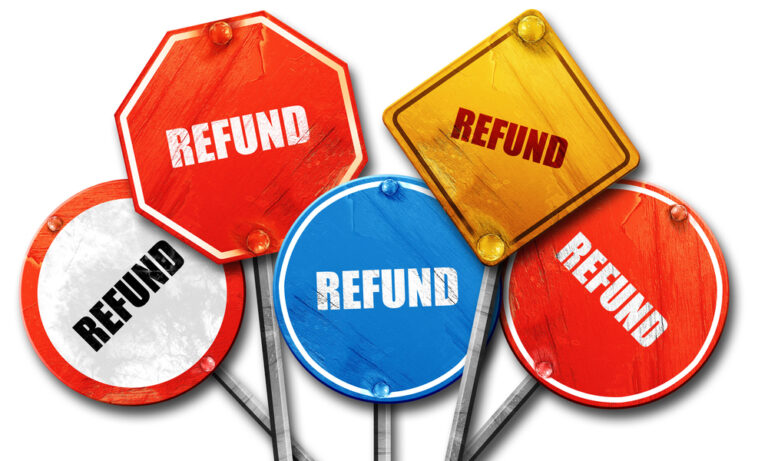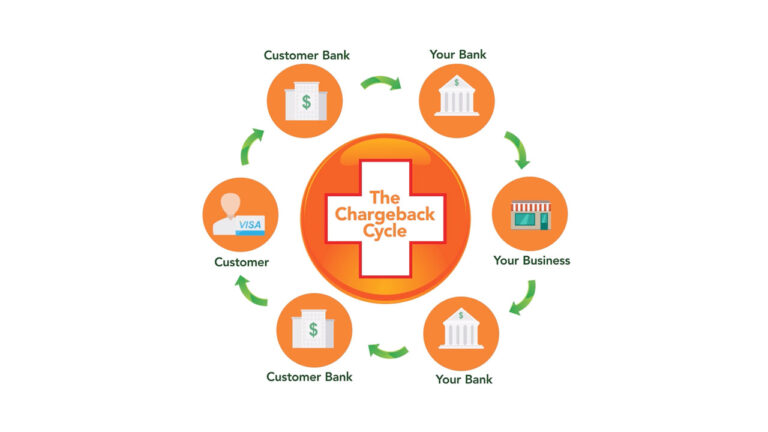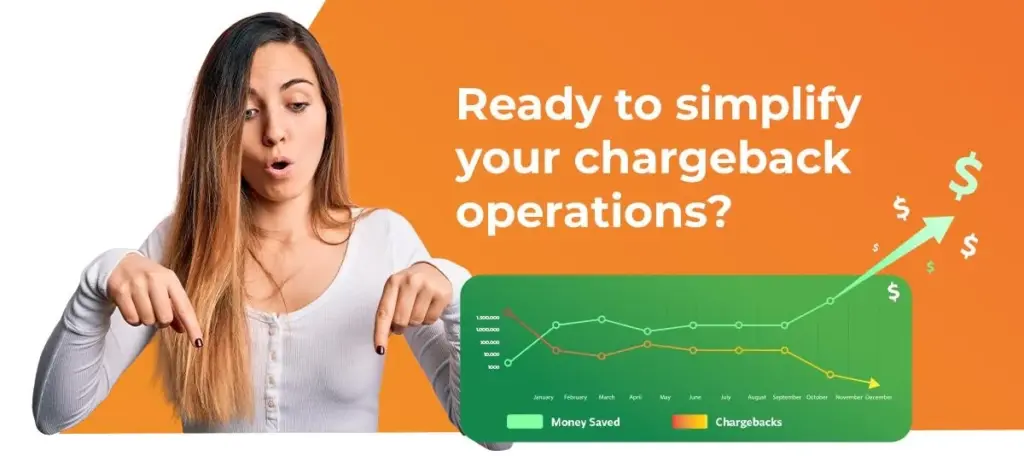Understanding the Merchant’s Rights When it Comes to Chargebacks

Chargebacks were enshrined into law to protect cardholders from fraud and other threats. As such, it’s perhaps no surprise that much of the discussion around chargebacks focuses on customers and their rights. However, businesses also have rights when it comes to chargebacks. It’s crucial for merchants to understand these rights and how to exercise them.
Global CNP fraud losses are forecast to reach over USD $28.1 billion by 2026 – a 40% increase from 2023 (Source: Ethoca). First-party “friendly” fraud, which often results in chargebacks, costs businesses more than $130 billion per year. While security measures and protocols are advancing, fraud remains a serious threat and may increase in the years ahead.
When chargebacks occur, the focus is often on the revenue from a sale that’s directly at stake. However, the revenue itself is only a portion of the total costs. It’s estimated that for every $1 lost to fraud, associated costs for U.S. merchants are $3.75 (once management expenses and chargeback fees are tacked on). Given the high costs, it’s crucial for merchants to understand their rights and how to effectively fight chargebacks. Unfortunately, however, many businesses fall short on both accounts.
Both Cardholders and Merchants Have a Right to Contest Chargebacks
As a merchant, you have a right to contest a chargeback. If you’re successful, you’ll be able to recover the revenue from the sale. Obviously, this could have a major impact on your bottom line. When a customer files a chargeback, you can furnish evidence that the purchase was legitimate and that the customer received the product.
Some people fraudulently file chargebacks. In these cases, the cardholder made a legitimate purchase, received the goods, and yet they file a chargeback anyway. Why? If the chargeback is approved, they’re essentially getting free goods, while the merchant must eat the losses in terms of both products and inventory. This is often referred to as “friendly fraud” or first-party fraud since the cardholder is committing a criminal act.
Some merchants view fighting chargebacks as too much of a hassle and simply accept them without a fight. However, if a merchant gains a reputation for being an easy target and not contesting chargebacks, it could drive chargeback volumes even higher.
On the other hand, if your company is known for fighting and winning chargeback disputes, it could discourage bad actors. Further, modern dispute management and anti-chargeback tools also make it much easier for organizations to fight and prevent chargebacks. As such, it’s crucial for merchants to exercise their right to contest chargebacks. Clawing back revenue and building a no-nonsense reputation can go a long way.
A Quick Look at the Legal Status of Chargebacks
Before we cover the rights provided to merchants, it’s important to understand the general legal environment. In the United States, the federal government set forth requirements for card networks and issuers to come up with a process for cardholders to dispute charges. This was done with the aim of protecting cardholders.
However, the federal government did not outline the chargeback process specifically. The government more broadly required that cardholders have recourse and that creditors investigate claims in a timely fashion. Card networks and other stakeholders then stepped in to outline the modern chargeback process.
You can see the text for the act here
With credit cards, federal law requires the “creditor” (typically the card issuer) to provide the “obligor” (cardholder) with at least 60 days to dispute the charge. The law provides protection against “billing errors” but this term is more expansive than it might first appear, and includes things like fraudulent purchases.
It’s crucial for merchants to understand that the chargeback process specifically is guided more by policies set forth by card networks, issuers, and other stakeholders, rather than what is set in law. Merchants are still afforded protections by these policies and agreed upon legal contracts, such as between a merchant and card network, will generally be upheld in court.
The Merchant’s Rights When Chargebacks are Filed
Merchants have quite a bit of rights when it comes to chargebacks. First, the merchant is owed an explanation when they are hit with a chargeback. When a merchant receives notice of a chargeback, they will be supplied with a reason code that categorizes why the chargeback was filed. With this information in hand, the merchant can decide whether or not to contest the dispute.
Should the merchant challenge the chargeback, they can “re-present” the charge (you’ll often hear this stage of a chargeback dispute referred to as representment). The merchant can offer evidence that the original transaction was legitimate and thus not the result of third-party fraud.
To win a chargeback dispute, the merchant will typically need to prove either that the reason code doesn’t apply or that the chargeback is fraudulent. For example, if a cardholder claims they didn’t make the purchase, you might provide IP addresses or device IDs showing that the purchase was made from the customer’s location. You may also show signed shipping receipts to prove that the customer received the goods. All of this is called “compelling evidence”. Convincing information could lead to the card issuing bank siding with the merchant and declining the customer’s request to have their chargeback approved.
Rights During the Second Presentment Phase
At the end of the first representment, the card issuer will make a determination, siding either with the cardholder or the merchant. While issuers may have a natural tendency to side with their cardholders, in practice banks don’t want to enable fraud and payment abuse, so if a merchant presents convincing evidence, they can win the chargeback dispute.
Whatever the issuer decides, however, the losing party can file for a second chargeback, or second representment as it is sometimes called. During this stage, the representment process starts over. In practice, the disputing parties often accept the first ruling and move on. However, if a merchant uncovers evidence that could sway their case, they may push for a second chargeback. A merchant can also argue that their case doesn’t meet the criteria in the chargeback reason code.
In practice, unless a merchant uncovers new compelling evidence, it’s best to avoid filing a second chargeback. Without new evidence, you’re unlikely to secure a different outcome. Second chargebacks are also sometimes called “pre-arbitration” because one of the disputing parties can push for the card network to step in and make a final ruling.
Right to Arbitration
If the merchant or cardholder is unsatisfied with the outcome of the first and second chargeback phases, they can request arbitration. As a merchant in a dispute, you have the right to push for arbitration, however, in practice, disputes rarely reach this stage.
Why? The loser of the dispute will have to pay hundreds of dollars in arbitration fees. The exact costs can vary based on network and geographic location. If a merchant has already been found liable by the issuer, there is a high chance that there is compelling evidence against them and they may face long odds in arbitration. Still, a merchant has a right to arbitration if they believe that they have a compelling argument or that the card issuer is simply incorrect in their ruling.
Other Rights Merchants Have Regarding Chargebacks
There are some other important rights as outlined below that merchants should keep in mind if they are facing chargebacks. The below points pertain to transactions made in the United States. While many jurisdictions follow similar rules and regulations, there can be important differences.
- Limits to Losses: The merchant’s losses are limited to the original price the customer paid (this can include taxes, shipping and handling, etc.) plus chargeback and arbitration fees. This is important to note because if a merchant issues a refund, the cardholder can’t then try to also pursue a chargeback.
- Rights with Late Delivery: If a delivery was delayed owing to issues outside of the merchant’s control, such as a mess up on the shipping partner’s end or a natural disaster, the cardholder must resolve the issue directly with the merchant; late deliveries are not grounds for chargebacks.
- ashback Isn’t Included: Crucially, if cash is taken out at a store, the merchant isn’t obliged to cover the cash back.
- 15 Days to Clear Up Returns: If a customer files a dispute, they and their issuer will have to wait at least 15 days before proceeding with a chargeback. This gives the merchant time to process a refund.
There are also some legal gray zones and merchants may have rights laid out specifically by card networks and other authorities. Federal law only requires that cardholders be given 60 days to file a chargeback. However, card networks will often permit a cardholder up to 120 days to file a chargeback. That said, there is a limited window to file most chargebacks.
Card networks also give merchants specific timelines to respond to disputes. However, these allowances aren’t defined into law, so you need to check with the individual card network.
Fighting Chargebacks With the Right Tools
Fighting chargebacks is a rather intensive process and can eat up a lot of labor if you try to handle everything manually. There are also many deadlines that you must hit, and if you miss them, you’re much more likely to lose the case. The good news is that chargeback management and representment tools like ChargebackHelp’s RECOVER, will greatly increase your chances of winning a dispute while also making the whole process much easier to manage.
RECOVER can automatically gather data, including IP addresses, delivery conformations, and device IDs. Our platforms also make it easier to share this information with financial institutions, which makes it easier to hit deadlines. By fighting chargebacks, merchants can protect their button line and decrease fraud. In the long run, this could prove to be the difference between success or failure for merchants and other organizations.








